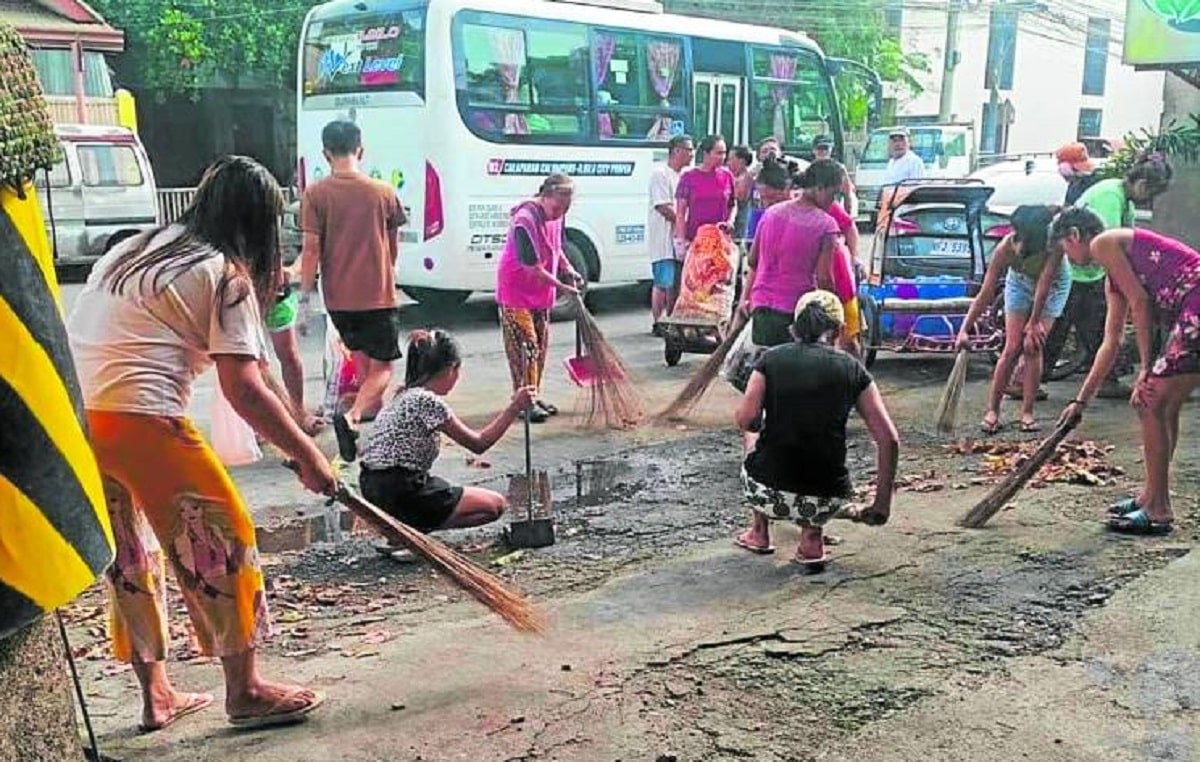
IT TAKES A VILLAGE Iloilo City residents conduct a community cleanup drive on Aug. 25 as part of the local government’s intensified campaign against dengue, particularly to destroy potential mosquito breeding sites. —PHOTO COURTESY OF ILOILO CITY DRRMO
ILOILO CITY—The city of Iloilo has been placed under a state of calamity to boost the local government’s response to the increasing number of dengue cases here.
The city council on Wednesday approved the recommendation of the City Disaster Risk Reduction and Management Council after dengue cases since the start of this year went up by almost 50 percent compared to the same period last year.
Data released by the City Health Office (CHO) showed that 903 dengue cases were recorded in Iloilo City from Jan. 1 to Aug. 28, higher than the 574 cases recorded last year. Four people also died due to dengue in the city in the first eight months of 2024, compared to the three fatalities over the same period in 2023.
READ: Dengue cases in Iloilo up by 161%
Dengue, according to the World Health Organization, is an infection caused by the Aedes aegypti mosquito.
The infection triggers a severe flu-like illness often followed by a severe drop in an infected person’s platelet count. Among other symptoms are severe headache, pain behind the eyes, full-body aches, nausea, vomiting, swollen glands or rashes.
The CHO proposed a budget of P7.4 million to procure testing kits and other equipment to combat the mosquito-borne disease.
“Dengue is a challenge for us,” said Dr. Anabelle Tang, CHO chief, stressing the importance of raising awareness and encouraging community action, particularly through cleanup drives.
Misting, cleanup
“We already have four deaths. We don’t want any more deaths until the end of the year,” she said.
Mayor Jerry Treñas outlined the city’s plan to acquire misting machines and to equip all barangays and schools with what they need to combat dengue.“We will request them to do the misting. We will conduct regular cleanup in barangays and all the schools weekly,” Treñas said.
The mayor is also pushing for a widespread information campaign, urging the media to encourage public participation.
The CHO has reactivated its 30-bed hydration unit at La Paz Health Center to manage the influx of patients and prevent overcrowding in district hospitals.
Misting operations have been intensified, especially in public schools, public spaces, and dengue hot spots.
Treñas stressed the need for coordinated action to protect public health and prevent further casualties.
“If we come together in our campaign against dengue, we can significantly reduce the number of cases and protect our community,” he said.
On Aug. 20, the province of Iloilo was also placed under a state of calamity due to a 418-percent surge in dengue cases.